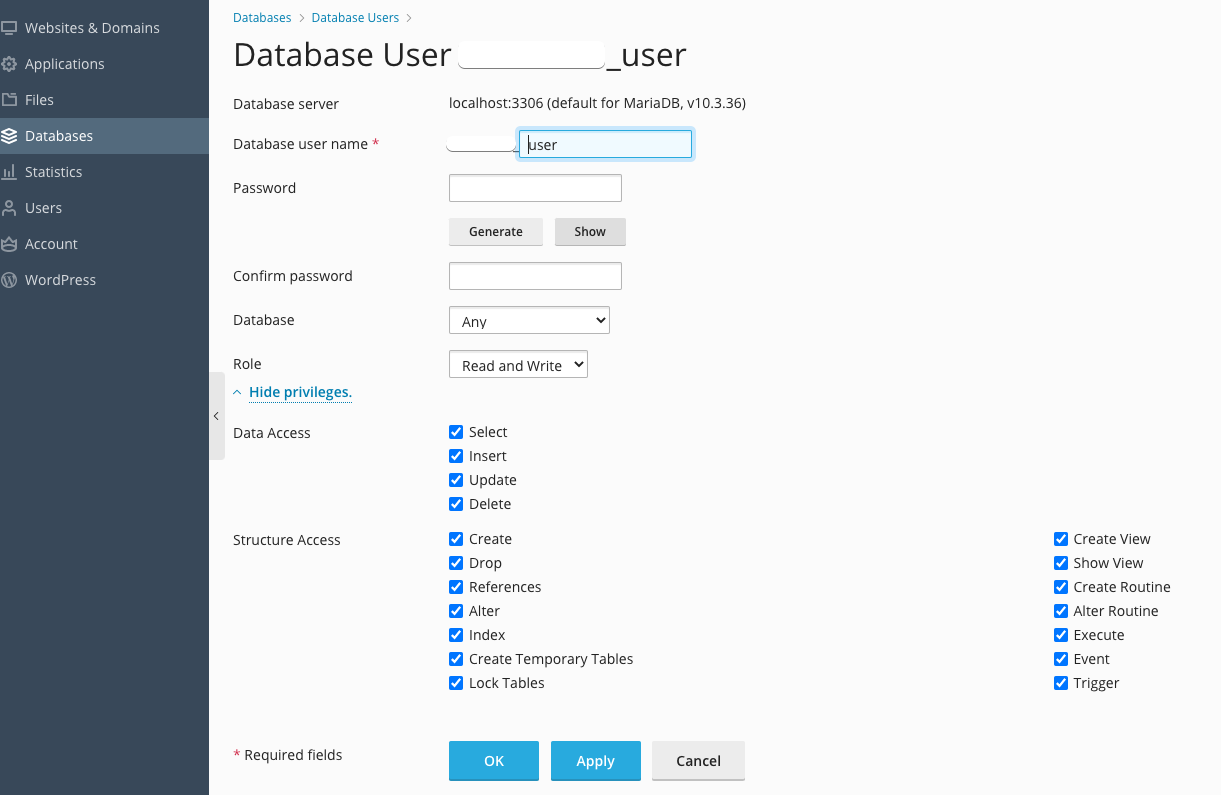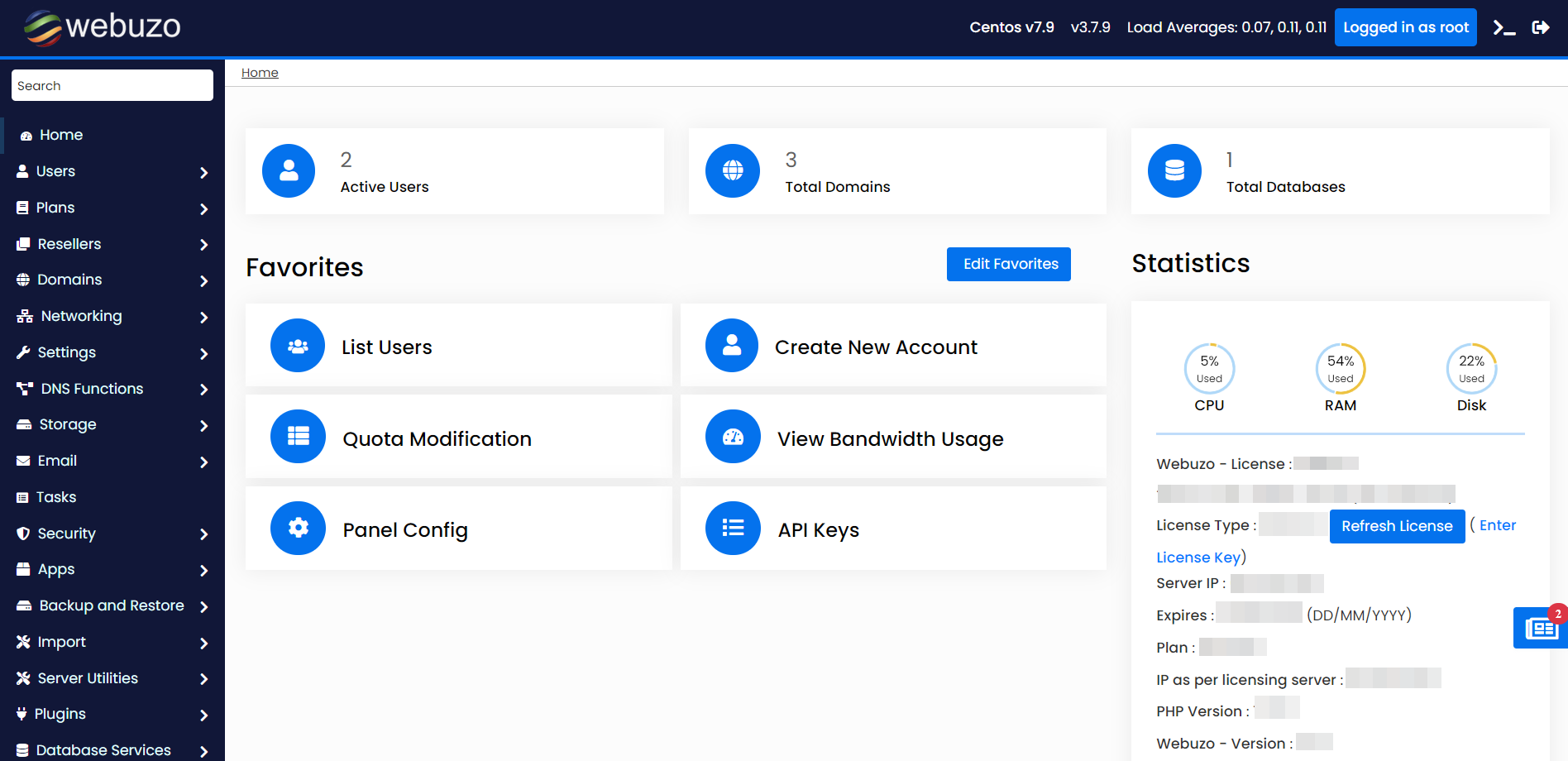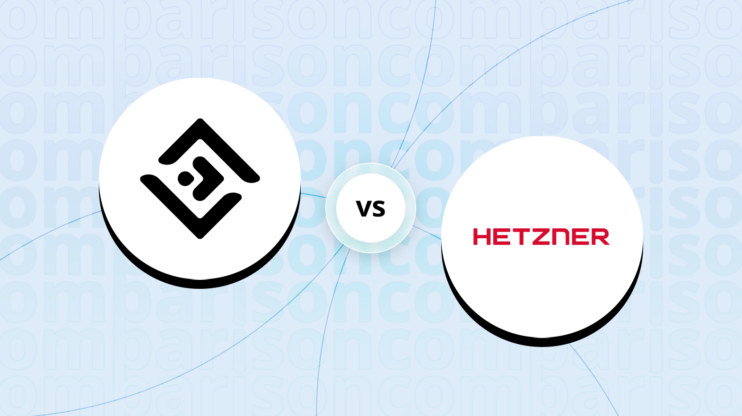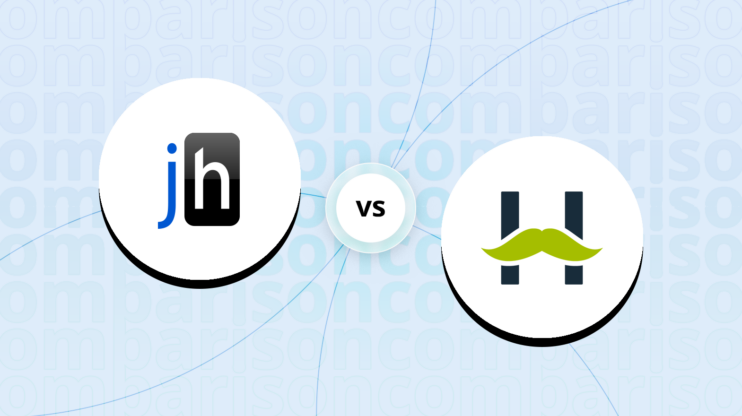Namecheap vs Leaseweb: Final verdict
Final verdict
Looking over Namecheap vs. Leaseweb, Leaseweb comes out on top due to its higher performance and more extensive features.
-
Leaseweb (Overall grade: 8.0)
excels in providing a stable, high-performance hosting solution with notable strengths in uptime, bandwidth capacity, and global data center coverage. With a 99.999% core uptime guarantee and robust network capacity, Leaseweb is ideal for high-traffic and business-critical websites. The platform offers flexible scaling options, which allow for customized configurations, supporting businesses as they grow. However, its lack of a built-in website builder and free SSL certificates may deter some users, especially smaller businesses or beginners. The more technical setup and management processes might require a steeper learning curve for those without extensive IT experience.
-
Namecheap (Overall grade: 7.2)
stands out for its affordability, user-friendly features, and comprehensive security measures. It offers a range of hosting types inclusive of shared, WordPress, and eCommerce-specific plans, making it a great option for new or small businesses. Namecheap’s inclusion of freebies like free SSL certificates for the first year adds tremendous value. While it ensures a 99.9% uptime and commendable hosting speeds, its performance does exhibit variability, and response times can sometimes lag. However, the platform’s intuitive cPanel interface, extensive customer support, and free website migration make it accessible and attractive to a broad user base.
 Overall grade:7.2 |
 Overall grade:8.0 |
|
|---|---|---|
| Uptime and Availability | 8.0 | 8.7 |
| Hosting Performance | 8.2 | 8.6 |
| Hosting Security | 8.5 | 8.3 |
| Price | 8.7 | 8.3 |
| Hosting Features | 7.5 | 6.8 |
| Ease Of Setup | 8.8 | 7.1 |
| User Management | 0.0 | 7.0 |
| Customer Support | 8.0 | 9.1 |
| User feedback | 4.3/5 | 2.8/5 |
Hosting types offered
Both platforms provide a variety of hosting types, each designed to meet the different needs of users.
 |
 |
|
|---|---|---|
| Shared hosting | ||
| Cloud hosting | ||
| WordPress hosting | ||
| Ecommerce hosting | ||
| VPS hosting | ||
| Dedicated hosting |
Although both offer a variety of hosting plans tailored to different needs, in
certain cases, one platform may prove to be more suitable.
Detailed comparison
Uptime and availability
Evaluates the average uptime statistics, uptime guarantee and overall availability of the hosting
provider
Score Components:
- Uptime percentage (30%): evaluates the uptime statistics in given period of time
- Uptime guarantee (20%): Assesses if the platform offers an uptime guarantee and
whether the actual uptime matches the promised guarantee. - General performance (25%): Evaluates how fast is the average response time and overall
it’s stability. - Responsiveness (10%): Adaptability to different devices and screen sizes.
- Availability (25%): Reflects the total downtime and number of outages.
 8.0
8.0
 8.7
8.7
🏆 Winner Leaseweb: Leaseweb excels in uptime and global data center coverage.

Leaseweb offers an impressive 99.999% core uptime guarantee, making it a reliable choice for businesses with critical uptime requirements. Their shared hosting performance is nearly flawless, showcasing only one instance of downtime over a month-long test. Leaseweb’s extensive network capacity, bandwidth of over 10 Tbps, and peering with over 2000 ISPs ensure smooth and reliable connectivity. Strategically located global data centers enhance access and performance across major business regions.

Namecheap, while commendable with a 100% uptime guarantee on shared, business, and dedicated server accounts, has shown variability in actual performance. Their recent uptime performance of 99.82% and average of 99.96% demonstrate reliability but fall short of Leaseweb’s near-perfect record. Namecheap’s response times are generally slower, and although they offer compensation for downtime, Leaseweb’s monitoring and incident resolution processes are more compelling for consistent uptime.
Which one has better hosting performance?
Score Components:
- Hosting speed (30%): This includes SSD quality, Load times, PageSpeed score ranges,
additional information on website speed, built-in plugins for performance enhancement, available caching
methods, and CPU/RAM options - CDN (20%): Considers whether CDN is available or not, whether it’s free or paid, and
the quality of the CDN service - Available data centers (30%): Evaluates the number of data centers and their locations
globally. - Scalibility (20%): Looks at whether elastic scaling is available, the process required
to scale (manual upgrade vs. automatic scaling), the presence of dedicated servers, and the costs
associated with scaling.
 8.2
8.2
 8.6
8.6
🏆 Winner Leaseweb: High availability and global network.
When comparing the general performance of Namecheap and Leaseweb, both offer competitive features, but Leaseweb stands out with its higher uptime guarantee of 99.999% compared to Namecheap’s 99.9%. Namecheap’s hosting speed is notably efficient with SSD storage across all plans and built-in plugins for WordPress hosting that optimize speed. Namecheap also includes free CDN and SSL with their plans. Leaseweb, on the other hand, is known for its high-performance servers with configurable options for CPU and memory, ensuring optimal speed. Data centers for Namecheap are spread across the US, UK, and EU, while Leaseweb has a more global presence with ISO-certified data centers and extensive network connectivity.
Website Speed
Namecheap’s EasyWP hosting boasts an impressive fully loaded time of 0.7 seconds and offers a free CDN to enhance speed. Its SSD storage and regular backups also contribute to faster page loads. Leaseweb capitalizes on powerful compute capabilities with high IOPS and low-latency networks, ensuring rapid data transfer and minimal delay. Leaseweb’s broadband capacity and the use of Intel or AMD processors further improve website speeds.
Scalability
Namecheap provides a variety of plans that require manual upgrades to scale, such as their Stella Plus and VPS options, but they do not automatically scale. Dedicated server options are also available. Leaseweb offers more flexible scaling options allowing for configuration based on specific needs, including adding GPU support or upgrading servers to meet higher bandwidth requirements. The cost structure for scaling with Leaseweb can be optimized based on performance needs, though specific cost details are not provided.
Which one has better security features?
and regulatory requirements
Score Components:
- Technical security measures (40%): This includes encryption, firewalls, DDoS
protection, secure configurations, server monitoring, access control and availability of security addons
(e.g Sitelock security). - Operational security measures (30%): Encompasses data privacy, backups and data
redundancy. - Compliance and certifications (20%): Adherence to legal and regulatory requirements
(e.g., GDPR, HIPAA) and possession of certifications (e.g., ISO 27001, SOC 2). - Business and reliability (10%): Factors in the provider’s reputation, uptime
guarantees, and customer support.
 8.5
8.5
 8.3
8.3
🏆 Winner Namecheap: A comprehensive set of security features ensuring a secure hosting environment.
Both Namecheap and Leaseweb, have notable differences in their approaches to technical and operational
security, as well as in their compliance with regulations.
Technical security measures:
Namecheap offers a wide array of security features, including various SSL certificates, two-factor authentication, domain privacy, and virus scanning. It supports multiple PHP versions from 5.X to 8.X, granting flexibility for developers. It also includes Hotlink Protection and IP Deny Manager to prevent unauthorized access. Leaseweb provides SIEM SOC service, hardware-based DDoS IP protection, and collaboration with Northwave for penetration testing. Both providers offer SSL certificates. Leaseweb’s hardware-based solutions and SIEM SOC service provide robust protection against sophisticated threats.
Operational security measures:
Namecheap includes features like FastVPN for secure browsing, Jellyfish Spam Protection, and premium DNS services. These ensure data privacy and protect against spam and other email-related threats. Additionally, features like SSH access and CodeGuard Backup enhance security. Leaseweb’s 24/7 monitoring through its Security Operations Center (SOC) and customizable security profiles and rules provide continuous surveillance and threat mitigation. Backup solutions, such as the Acronis Backup, help maintain data integrity. While both offer robust operational security, Namecheap’s additional tools like FastVPN and Jellyfish Spam Protection provide added benefits.
Compliance and certifications:
Namecheap is GDPR compliant, providing rights like access, rectification, and erasure of personal data. It offers extensive data protection features but does not explicitly provide PCI or HIPAA compliance. Leaseweb is also GDPR compliant and ensures payment card security through PCI DSS. It offers global contact points for privacy concerns, reinforcing its commitment to data protection.
 |
 |
|
|---|---|---|
SSL certificate |
Yes |
Yes |
Additional security features |
Yes |
Yes |
PHP versions |
PHP 5.X to PHP 8.X |
Not specified |
GDPR compliance |
Yes |
Yes |
HIPAA compliance |
Not specified |
Not specified |
PCI compliance |
Can help meet requirements |
Yes |
Hosting features
Score Components:
- Domains (20%): Assesses the availability of a free domain, domain purchase options, and
pricing - Email (15%): Considers if the provider offers full email hosting, or is reselling
third-party service, and if the email is only transactional or not - Website builder (15%): Checks if website builder is available, and it’s user
friendliness and overall the level of customization allowed. - Staging environment (20%): Determines if a staging environment is available, allowing
for testing changes before going live. - FTP & SFTP accounts (10%): Evaluates if and how easily users can access FTP and
SFTP accounts - Git and SSH access (20%): Assess whether Git is integrated into the hosting service and
if SSH access is provided
 7.5
7.5
 6.8
6.8
🏆 Winner Namecheap: A comprehensive hosting solution with excellent user-friendly features.
Namecheap and Leaseweb offer a variety of hosting plans tailored to different needs, but some key factors set them apart. Both providers have website builders, which can be a significant factor for users who want an easy way to create their sites. Namecheap’s hosting plans include a Website Builder feature across all shared plans, making it easy for users of any technical skill level to get started. Leaseweb, while providing robust hosting options, does not explicitly offer a built-in website builder in their plans.
Namecheap also offers a range of attractive freebies and features that could sway potential customers. For instance, Namecheap includes 50 free PositiveSSL certificates for one year, which adds considerable value for businesses concerned with security. Namecheap’s extensive support options and money-back guarantee provide a safety net for users. Leaseweb, on the other hand, shines in its VPS hosting, offering various operating systems and control panels for web automation. The lack of a free SSL certificate and a website builder might be limiting for some users. Leaseweb’s faster delivery time of one day for its hosting plans could be appealing for those needing a quick setup.
 |
 |
|
|---|---|---|
Free domain |
No |
No |
Free SSL |
Yes, for the first year |
No |
Email hosting |
Yes |
Yes |
Website builder |
Yes |
No |
Staging environment |
No |
No |
FTP & SFTP accounts |
Yes |
Yes |
Git and SSH access |
Yes |
Yes |
Free backup |
Yes |
No |
Money back guarantee |
Yes, 30 days |
No |
a location.
As a result in rare cases the features mentioned here can differ from the ones you see on their websites.
Both providers support a range of users from beginners to experts with user-friendly website builders and WordPress staging areas. However, in terms of developer tools, both Namecheap and Leaseweb offer robust options including SSH access, support for multiple programming languages, and Git for version control, thus appealing to developers looking for advanced capabilities.
Email services:
Email services at Namecheap offer comprehensive email hosting with features like multiple mailboxes, email forwarders, and spam protection. Users on higher plans can enjoy unlimited mailboxes along with advanced features. Leaseweb also provides email hosting but with more restricted offerings on the lower-tier plans. Both providers do not resell third-party email services, focusing instead on their in-house solutions. This makes Namecheap more suitable for users needing extensive email hosting capabilities.
Price
Score Components:
- Plan value (40%): What each pricing tier offers.
- Transparency and clarity (30%): Clearness of pricing structures.
- Flexibility of plans (20%): Range of options to suit different budgets.
- Hidden costs (10%): Additional expenses not included in the plan.
 8.7
8.7
 8.3
8.3
🏆 Winner
Namecheap: Offering comprehensive features at competitive prices across multiple hosting types.
Evaluating the pricing of plans among various hosting providers can be complex due to their differing pricing and renewal strategies. Additionally, certain plans require annual commitments, which adds to the difficulty of making comparisons. The prices listed are based on monthly commitments; plans requiring annual commitments are indicated. Additionally, although some providers offer identical plans for WordPress and shared hosting, we have created separate tables for each to enhance clarity.
Namecheap and Leaseweb offer an array of hosting plans with varying prices and features. Namecheap presents affordable shared hosting starting at $1.98/month and managed WordPress hosting from $2.91/month, including free domain names and SSL certificates which make it a budget-friendly option. Leaseweb, on the other hand, offers web hosting beginning at €5.99 PM but lacks the inclusion of extra features like a free domain. For enterprise-focused dedicated hosting, both providers have competitive options with Namecheap’s servers starting from $44.88/month while Leaseweb’s are priced from US$44.61/month, though Leaseweb includes a setup fee. Namecheap’s versatility and comprehensive offerings present a notable edge.
 |
 |
|---|---|
|
EasyWP Starter $6.88
1 website, 10 GB SSD storage, 50k visitors/month, free CDN, free SSL, installed in under 90 seconds, hosted on Namecheap Cloud, 99.9% uptime, 3X faster than traditional hosting, easy backups and restores, SFTP and database access. Value for price:8.5
|
N/A |
|
EasyWP Turbo $12.88
1 website, 50 GB SSD storage, 200k visitors/month, 1.5x more CPU and RAM, free CDN, free SSL, installed in under 90 seconds, hosted on Namecheap Cloud, 99.9% uptime, 3X faster than traditional hosting, easy backups and restores, SFTP and database access. Value for price:8.8
|
N/A |
|
EasyWP Supersonic $19.88
1 website, 100 GB SSD storage, 500k visitors/month, 2x more CPU and RAM, free CDN, free SSL, installed in under 90 seconds, 99.99% uptime guarantee, hosted on Namecheap Cloud, 3X faster than traditional hosting, easy backups and restores, SFTP and database access. Value for price:9.0
|
N/A |
 |
 |
|---|---|
|
Stellar $4.48
3 websites, 20 GB SSD, unmetered bandwidth, 30 mailboxes, website builder, free domain (1st year), free automatic SSL, Supersonic CDN, free migration, 30-day money-back guarantee. Value for price:8.7
|
Small – Linux €5.99 excl. VAT
1 domain, 25 GB SSD, 10 mailboxes, 5 MySQL, delivery in 1 day. Value for price:7.5
|
|
Stellar Plus $6.48
Unlimited websites, unmetered SSD, unlimited mailboxes, autobackup, website builder, free domain (1st year), free automatic SSL, Supersonic CDN, free migration, 30-day money-back guarantee. Value for price:8.9
|
Medium – Linux €8.99 excl. VAT
1 domain, 100 GB SSD, 50 mailboxes, 10 MySQL, delivery in 1 day. Value for price:7.8
|
|
Stellar Business $9.48
Unlimited websites, 50 GB SSD, unlimited mailboxes, autobackup & cloud storage, website builder, free domain (1st year), free automatic SSL, Supersonic CDN, free migration, 30-day money-back guarantee. Value for price:9.1
|
Large – Linux €10.99 excl. VAT
1 domain, 250 GB SSD, 250 mailboxes, 50 MySQL, delivery in 1 day. Value for price:8.0
|
 |
 |
|---|---|
|
Basic Dedicated Server $44.88
Full root access, customizable configurations, 200 GB backup storage, 24/7 support, no setup fee, 200 GB backup storage. Value for price:8.7
|
Public Cloud
Scalability on demand, advanced API automation, robust data sovereignty, no upfront investment, load-balancer included. Value for price:8.0
|
As a result in rare cases the prices displayed here can differ from the ones you see on their websites.
Enterprise plans
Namecheap and Leaseweb both offer robust options for enterprise hosting. Namecheap provides flexible and customizable dedicated server solutions with no setup fees and full root access starting from $44.88/month, making them attractive for businesses needing reliable support and storage. Leaseweb, though competitive, has a setup fee of $50.00 for their dedicated server plans starting from US$44.61/month, featuring higher-end configurations ideal for high-traffic websites. These plans are backed by comprehensive SLA options, ensuring consistent performance and rapid response times.
Namecheap vs Leaseweb: Ease of setup
platform.
Score Components:
- Site migration (25%): Assesses whether the provider offers tools for site migration,
either automated or manual, and whether these services are free or require a fee. - Admin panel usability (35%): Evaluates the type of admin panel provided, such as the
standard cPanel or a custom solution, focusing on its accessibility and user-friendliness for both
technical and non-technical users. - Setup features (20%): Examines the availability and ease of use of various setup
features, including FTP accounts, file managers, email account setup, PHPMyAdmin, and easy CDN
configuration. - Help center quality (20%): Measures the quality and accessibility of the provider’s
help center resources, including articles and tutorials.
 8.8
8.8
 7.1
7.1
🏆 Winner
Namecheap: Namecheap offers an easy-to-navigate setup process and excellent customer support features.
Namecheap uses a standard cPanel for its regular hosting plans, providing users with a familiar and intuitive interface. Additionally, for those who opt for EasyWP hosting, Namecheap offers a customized dashboard that simplifies website management, suitable for both technical and non-technical users. The EasyWP dashboard consolidates all necessary tools in one place, eliminating the common hassles associated with traditional cPanel. On the other hand, Leaseweb utilizes a custom control panel that is accessible through their Customer Portal. While this portal provides a range of functionalities, it may take some time for users unfamiliar with Leaseweb’s system to get accustomed to it. The portal is feature-rich but might be overwhelming for those not well-versed in technical setups.

Namecheap on the other hand, offers a dual interface that combines a custom dashboard with full cPanel access, catering to both beginners and technically advanced users. The platform includes a comprehensive help center filled with a wide variety of guides and tutorials, aimed at assisting users in managing and optimizing their websites effectively.

Both providers offer migration services, but Namecheap clearly stands out by offering free migrations through the All-in-One WP Migration plugin. This ensures a smooth and hassle-free transition from other hosts like GoDaddy, BlueHost, or SiteGround. Leaseweb does not explicitly offer free migration services and relies more on user manual intervention or customer support for migrations.
When evaluating help center resources, Namecheap has an extensive Knowledgebase complete with guides, FAQs, and 24/7 live chat support, ensuring that users have constant access to assistance. Leaseweb also offers a broad range of support documents and a customer portal, along with live chat and email support. However, its help center may not be as user-friendly for those new to web hosting.
User management
accessibility.
Score Components:
- Role customization (40%): Flexibility in creating and defining user roles and
permissions. - Ease of management (30%): User interface and tools for managing users.
- Access control (20%): Effectiveness of access control measures for different user
levels. - Scalability (10%): Ability to manage a growing number of users efficiently.
 0.0
0.0
 7.0
7.0
🏆 Winner Leaseweb: Efficient user management with flexible control panels and detailed infrastructure oversight.
Namecheap lacks detailed information on user role management, making it challenging to compare directly with Leaseweb. Leaseweb, however, provides comprehensive control panels like Plesk, cPanel, and Vesta, which are known for robust user management functionalities. These panels allow users to define roles, set permissions, and manage accessibility efficiently. Leaseweb’s Customer Portal and API also suggest additional layers of user management capabilities not identifiable in Namecheap.
Leaseweb offers an intuitive user interface across its control panels, Plesk, cPanel, and Vesta, which simplifies the user management process. These tools usually come with built-in wizards and dashboards, helping users swiftly navigate through various user management tasks. On the other hand, Namecheap’s interface details are currently unavailable, leaving potential users unsure about its user management proficiency.
Access control measures on Leaseweb platforms are generally effective due to the functionalities offered by Plesk, cPanel, and Vesta. These control panels provide a granular approach to control and manage a growing number of users, ensuring roles and permissions are scalable and adaptable. Without specific user management details from Namecheap, it remains uncertain how well it would handle large-scale user management compared to Leaseweb.
Leaseweb user roles table:
| Role | Description | Access highlights |
|---|---|---|
| Admin | Full control over the entire platform. | Can create and manage all user roles and permissions. |
| User Manager | Manages user accounts and roles. | Allows adding, removing, and updating user accounts. |
| Technical Support | Handles technical issues and configurations. | Limited access to user data but can modify system settings. |
Customer support
hosting provider.
Score Components:
- Support communication channels (30%): Measures the variety of customer support types
provided (live chat, chatbot, email, phone, etc.) - Availability (20%): Assesses the availability hours for each channel, including 24/7
support options. - Technical support quality (30%): Assesses whether the provider offers comprehensive
technical support, including hardware upgrades (e.g., HDD to SSD), software installations, and web
server configuration changes. - Enterprise support (20%): Checks if there are dedicated or priority support services
for enterprise-level customers.
 8.0
8.0
 9.1
9.1
🏆 Winner Leaseweb: Richer support options with multiple communication channels and varied response times based on service level agreements (SLAs).
 |
 |
|
|---|---|---|
Phone support |
||
Live chat support |
||
Chatbot |
||
Email/ticket support |
||
Enterprise support (dedicated agent, priority support) |
Namecheap offers 24/7 live chat and a ticketing system, ensuring immediate and continuous support. Their extensive knowledge base, complete with Guru Guides and How-To Videos, provides detailed self-help resources. However, they lack phone support, which could be a downside for users who prefer direct communication.
Leaseweb, on the other hand, provides a more comprehensive suite of customer service options, including phone support, email, fax, and an online contact form. Their response times vary based on the selected SLA, providing the flexibility needed for different business requirements. Additionally, Leaseweb supports various billing cycles and offers discounts for upfront payments, catering to varied client needs.
Namecheap vs Leaseweb: User feedback
Namecheap is widely appreciated for its affordability, reliability, and high-quality customer support. Users commend the availability of free SSL certificates, user-friendly cPanel, and outstanding hosting speed. However, shared hosting speed and the occasional slow response from support are noted concerns. Despite these minor drawbacks, Namecheap remains a popular choice for beginners and small to medium businesses due to its competitive pricing and satisfactory service quality.
The hosting provider excels in offering comprehensive services with impressive billing and contract flexibility, making it easier for businesses to manage their finances. Users appreciate the choice between “Volume” and “Premium” network options, which cater to different performance needs, and find the support and user interface to be intuitive and straightforward. However, customers have raised concerns about high charges for excess traffic, restrictive password policies, inconvenient login procedures, limited payment gateways, and a lack of variety in available system distributions. Overall, while the service is robust and user-friendly, there are areas in need of improvement to enhance the customer experience.
Namecheap vs Leaseweb: FAQ
Which platform is better suited for hosting WordPress websites?
Namecheap is better suited for hosting WordPress websites, offering dedicated managed WordPress hosting with specific tools and features. It provides various plans under the EasyWP hosting service, which includes free CDN, free SSL, and intuitive management through a custom dashboard. Leaseweb does not offer specific WordPress hosting plans.
Are both platforms suitable for beginners?
Namecheap is more suitable for beginners due to its user-friendly features such as an intuitive cPanel interface, free SSL certificates, and a built-in website builder. These features make it easy for users with minimal technical experience to set up and manage their websites. Leaseweb, while robust, has a more technical setup and management process that might be challenging for beginners.
Which hosting service offers better security features?
Namecheap offers better security features with a wider array of options including various SSL certificates, two-factor authentication, domain privacy, virus scanning, and FastVPN for secure browsing. Leaseweb also provides strong security measures with SIEM SOC service and hardware-based DDoS protection but lacks some of the user-friendly security tools offered by Namecheap.
What are the major differences in pricing and value between namecheap and leaseweb?
Namecheap offers more budget-friendly plans starting at $1.98/month for shared hosting with additional features like free domains and SSL certificates. Leaseweb’s plans start at a higher price point but provide high-performance servers and customizable configurations. Overall, Namecheap provides more value through its inclusions and affordability, making it ideal for small to medium businesses.
Which service is more suitable for hosting a high-traffic website?
Leaseweb is more suitable for hosting high-traffic websites due to its superior bandwidth capacity, strong network performance, and a 99.999% uptime guarantee. Its extensive network capacity and peering with over 2000 ISPs ensure reliable connectivity and scalability to handle high traffic loads efficiently.
How do the providers handle email hosting and what features are included?
Namecheap offers comprehensive email hosting with multiple mailboxes, email forwarders, and spam protection, making it suitable for extensive email needs. Leaseweb also provides email hosting but with more restricted offerings on lower-tier plans. Both providers focus on in-house solutions rather than reselling third-party email services.
The making of this blog
We followed a clear, step-by-step process to write and research this article.














